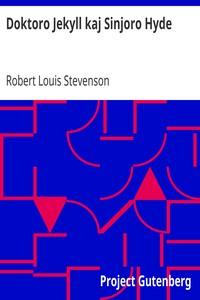|
|
Read this ebook for free! No credit card needed, absolutely nothing to pay.Words: 33937 in 10 pages
This is an ebook sharing website. You can read the uploaded ebooks for free here. No credit cards needed, nothing to pay. If you want to own a digital copy of the ebook, or want to read offline with your favorite ebook-reader, then you can choose to buy and download the ebook.

: Gloria Crucis addresses delivered in Lichfield Cathedral Holy Week and Good Friday 1907 by Beibitz J H Joseph Hugh - Good Friday sermons; Holy Week sermons@FreeBooksWed 07 Jun, 2023 GLORIA CRUCIS ADDRESSES DELIVERED IN LICHFIELD CATHEDRAL HOLY WEEK AND GOOD FRIDAY, 1907 LONGMANS, GREEN, AND CO. 39 PATERNOSTER ROW, LONDON NEW YORK, BOMBAY, AND CALCUTTA 1908 MATRI INTRODUCTION These addresses, delivered in Lichfield Cathedral in Holy Week, 1907, are published at the request of some who heard them. It has only been possible to endeavour to reproduce them in substance. To the first and the last of these he is especially indebted in regard to the view here taken of the Atonement. It seems to him that no view of that great and central truth can possibly be true, which represents it as the result of a transaction between the Father and the Son, which is ditheism pure and simple; or which regards it as intended to relieve us of the penalty of our sins, instead of having as its one motive, meaning, and purpose the "cure of sinning." So far as we can see, the results of sin, seen and unseen, in this world and beyond it, must follow naturally and necessarily from that constitution of the universe which is the expression of the Divine Mind. If this is true, and if that Mind is the Mind of Him Who is Love, then all punishment must be remedial, must have, for its object and intention at least, the conversion of the sinner. And, therefore, the desire to escape from punishment, if natural and instinctive, is also non-moral, for it is the desire to shirk God's remedy for sin, and doomed never to realise its hope, for it is the desire to reverse the laws of that Infinite Holiness and Love which governs the world. Yet this must be understood with one all-important reservation. For the worst punishment of sin, is sin itself, the alienation of the soul from God, with its consequent weakening of the will, dulling of the reason, and corrupting of the affections. And it was from this punishment, from this "hardest hell," which is sin, or the character spoiled and ruined by sin, that Christ died to deliver us. The idea of a penalty owing to the "justice" of God is a thoroughly legalistic one, the offspring of an age which thought in terms of law. It deals throughout with abstractions. The very word "justice" is a general notion, a concept, the work of the mind abstracting from particulars. Justice and mercy are used like counters in some theological game at which we are invited to play. "Penalty," again, is a term which serves to obscure the one important fact that God, as a Moral Person or, rather, as the One Self-Existent Being, of Whose nature and essence morality is the expression, can only have one motive in dealing with sinners, and that is, to reconcile them to Himself, to restore them to that true ideal of their nature, which is the Image of Himself in the heart of every man. Who can measure the pain and anguish which that restoration must cost, to the sinner himself, and to God, the All-Holy One, Who comes into a world of sin in order to restore him? There is no room here, at all events, for light and trivial thoughts of sin. That charge might be levelled, with more excuse, at the view that sin only incurs an external penalty, from which we can be cheaply delivered by the sufferings of another. Free books android app tbrJar TBR JAR Read Free books online gutenberg More posts by @FreeBooks
: A Commentary on Herodotus by How W W Walter Wybergh Wells J Joseph - History Ancient; Herodotus. History@FreeBooksWed 07 Jun, 2023

: Doktoro Jekyll kaj Sinjoro Hyde by Stevenson Robert Louis Mann William W Translator Morrison William Translator - Science fiction; Horror tales; London (England) Fiction; Physicians Fiction; Psychological fiction; Self-experimentation in medicine Fiction;@FreeBooksWed 07 Jun, 2023
|
Terms of Use Stock Market News! © gutenberg.org.in2025 All Rights reserved.






